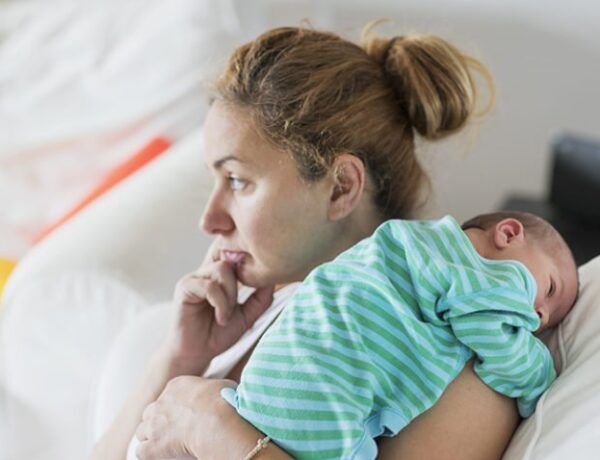Pregnancy loss is very common and affects 15% of pregnancies in the world. In this post, we answer the main questions on this subject. Check them out!
Although it is not a much-debated subject, due to grief and all the emotions that surround it, pregnancy loss is more common than one thinks and affects 15% of pregnancies worldwide.
In this article, we will answer the most common questions on the subject. Be sure to check them out!
What is pregnancy loss?
Pregnancy loss is defined by the death of the fetus in the mother’s womb. In this sense, there is a difference between early and late pregnancy loss.
Early pregnancy loss: it happens unexpectedly, from the moment of fertilization until 20 weeks of gestation. Also known as a miscarriage.
Late pregnancy loss: occurs unexpectedly, between 20 weeks of pregnancy and the delivery. Also called a stillbirth.
In both cases, if the family wishes so, a Death Certificate can be issued for the burial.
What are the most common causes of baby loss?
Most cases of pregnancy loss occur during the first trimester, especially between 8 and 12 weeks of pregnancy. The main causes are:
- Genetics: when the baby does not have normal development. More than half of early miscarriages happen for this reason;
- Hormones: Women with very irregular menstrual periods can have difficulty getting pregnant, and when they are pregnant, they are more likely to miscarry;
- Blood clotting: problems with the blood vessels that supply blood to the placenta;
- Infection: Certain infectious diseases such as rubella can cause miscarriage;
- Anatomy: There are three main anatomical causes that lead to pregnancy loss:
- If the cervix is weak, it may open as the uterus begins to feel heavy. This condition is called cervical isthmus insufficiency;
- If the uterus has an irregular shape, it may not have enough room for the baby to grow (the main uterine anomalies are septate, didelphic, bicornuate, and unicornuate uterus);
- Large fibroids can lead to miscarriage in late pregnancy.
What are the symptoms of pregnancy loss?
The main symptoms of pregnancy loss are:
- Fever and chills;
- Severe abdominal pain, similar to menstrual cramps;
- Vaginal bleeding, which may be brown at first;
- Vaginal discharge with an unpleasant odor;
- Severe or persistent headache;
- Absence of fetal movement for more than 5 hours.
I lost the baby. Do I need to go for curettage?
In general, curettage is only indicated for pregnancy loss that occurs up to the 20th week of gestation, when the embryo and endometrial content have not been expelled from the uterus.
This is a delicate process that must be done by an experienced doctor to minimize risks. The immediate postoperative phase is simple, and the woman is hospitalized only to recover from the anesthesia.
The procedure is performed by scraping the endometrium, which covers the uterine cavity and where the embryo is attached, with the help of a spoon-like tool called a curette.
The curette is inserted in the vagina without any incision, and the collected material can be discarded or sent for analysis.
When can I get pregnant again?
The World Health Organization (WHO) recommends that women wait 6 months after a miscarriage (which happens up to 20 weeks of pregnancy) to become pregnant again.
In the case of stillbirths, who lost vital signs after 20 weeks of pregnancy, the interval should be around one year to avoid adverse outcomes.
How do I recover from this painful event?
To experience grief and realize the loss, it is important to perform rituals while still in the hospital. If the family wants, they can have a moment with the baby, touching him, talking or singing to him, trying to make a memory.
Try to ask the hospital staff to make a box, gathering memories of the baby, such as markings of her/his little feet on a scarf and a lock of her hair, for example.
If possible, have a funeral – in this case, you can choose a family member to resolve bureaucratic issues. Religious practices and farewell ceremonies, such as funerals, help the family to grieve, as everyone faces the pain.
It’s important to take good care of yourself in the coming weeks and months, looking for moments of well-being, exercising regularly, and especially, going to therapy.
Talking to people who have been through a similar situation is also a great way to overcome grief. Hearing similar stories, even if they come from women you don’t know, will help you realize that you’re not alone and that they’ve found a way to get through the pain – and so will you. Support groups are great for this.
Did you like the post? Subscribe to our newsletter to receive more information like this!
Also read our article on supplements during pregnancy



